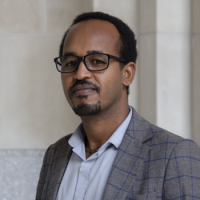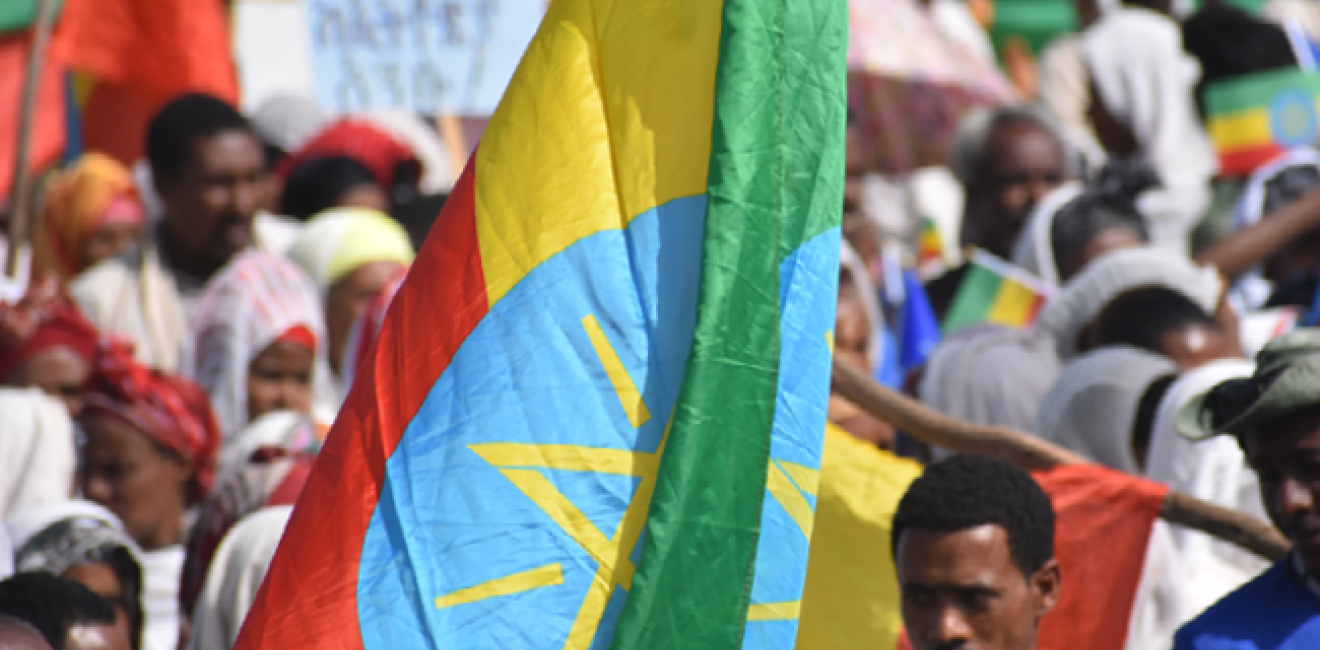
A blog of the Africa Program
At the end of 2021, the Ethiopian Parliament adopted a law establishing a National Dialogue Commission. International and regional diplomats expressed appreciation for the action, indicating that it is a good step towards resolving Ethiopia's political problems and ending the ongoing conflicts in the country. A principled national dialogue could restore a measure of stability allowing for longer term efforts to address ethnic polarization and intercommunal intolerance to commence. Such a national dialogue must encompass a broad range of stakeholders in all three phases — preparation, process, and implementation — in order for it to succeed. However, there are concerning issues that should be considered before it is too late in the preparatory phase, as the approach taken will influence the ultimate legitimacy of a national dialogue.
First, Ethiopia is experiencing one of the deadliest wars in its history between Federal led Forces and Tigrayan Forces in addition to various other conflicts occurring in the country. The economic and political impact of the war is being felt across the country. Ending the war and building peace needs to be a priority agenda of the government and the political elites in the country. However, the National Dialogue Commission is not mandated to stop the war; the enabling law indicated that the Dialogue is aimed at solving the "difference of opinions and disagreements among various political and opinion leaders and segments of society in Ethiopia on the most fundamental national issues'' and makes no mention of ending the war. The National Commission has no mandate to negotiate, reconcile, or set an agenda for a ceasefire among the warring parties as it is implied in the law and also confirmed by the head of the commission. Conversely, research shows that in many countries comprehensive peace and ceasefire agreements led to the initiation of national dialogues. Though the recent "humanitarian truce" declared by the warring parties gives hope for a permanent ceasefire, a negotiated agreement to silence the guns should come before or be the first order of business of the National Dialogue.
Second, the attitudes and trust of the national elites towards the National Dialogue process is an important factor that will influence its outcome. One of the disagreements between the political elites and a proximate cause of the war in the northern part of the country was the postponement of the national election, scheduled for August 2020, but cancelled due to the outbreak of the COVID-19. However, Tigray regional state defied this decision and went ahead with the election as planned. While the national election finally took place in June 2021, political parties that boycotted the 2021 election, such as the Oromo Federalist Congress, the Oromo Liberation Front, and the Ogaden National Liberation Front, are questioning the impartiality and representation of the National Dialogue process. The Political Parties Joint Council said the National Dialogue process had to be inclusive and trustworthy and called for a temporary halt to the nomination of commissioners. Balderas for Genuine Democracy Party called the National Dialogue "failed before formation." Ethiopian Citizens for Social Justice has also expressed its concerns and called for the shortcomings in the process to be corrected. A consensus and common understanding of the preparatory phase among the major actors is needed. In short, to make the process credible, the willingness and commitment of the major stakeholders should be secured.
Third, broader public participation is critical to gain legitimacy, communicate results, and channel the expectations of ordinary Ethiopians into the process. A national dialogue should have mechanisms to include the broader population and enabling conditions to keep the general public informed and engaged in the dialogue in the preparatory phase. Currently, over ten million people are in need of humanitarian assistance in the country. Due to the war, millions of people are in desperate need of food aid, and per the World Food Program, "40 percent of Tigrayans are suffering an extreme lack of food," with some of them living in famine-like situations in the northern part of the country. The blockade of essential services, including banking, electricity, and communications worsened the existed challenges. Compounding the dire food situation, Ethiopia is experiencing the worst drought in a generation in the eastern part of the country. Addressing these humanitarian crises before or parallel to the National Dialogue is critical.
To conclude, the decisions made during the preparatory phase, including the selection of a convener, will affect the ultimate legitimacy of the National Dialogue in the eyes of political forces and the public. Therefore, for a successful National Dialogue in Ethiopia, a ceasefire should be prioritized, unimpeded delivery of humanitarian assistance should be urgently facilitated to all in need, and consultation with major stakeholders continued in order to secure more genuine commitments and willingness to sincerely engage.
Awet Halefom Kahsay is a Ph.D. Candidate in Peace and Security Studies, Institute for Peace and Security Studies, Addis Ababa University, Ethiopia. He is a Southern Voices Network for Peacebuilding (SVNP) Scholar and an Africa Program Scholar during Spring 2022.
Photo source: A rally in support of the Prosperity Party Government ahead of the Ethiopian elections R. Bociaga/Shutterstock.
Author

Ph.D. Candidate in Peace and Security Studies, Institute for Peace and Security Studies, Addis Ababa University, Ethiopia

Africa Program
The Africa Program works to address the most critical issues facing Africa and US-Africa relations, build mutually beneficial US-Africa relations, and enhance knowledge and understanding about Africa in the United States. The Program achieves its mission through in-depth research and analyses, public discussion, working groups, and briefings that bring together policymakers, practitioners, and subject matter experts to analyze and offer practical options for tackling key challenges in Africa and in US-Africa relations. Read more

Explore More in Africa Up Close
Browse Africa Up Close
The Innovative Landscape of African Sovereign Wealth Funds



